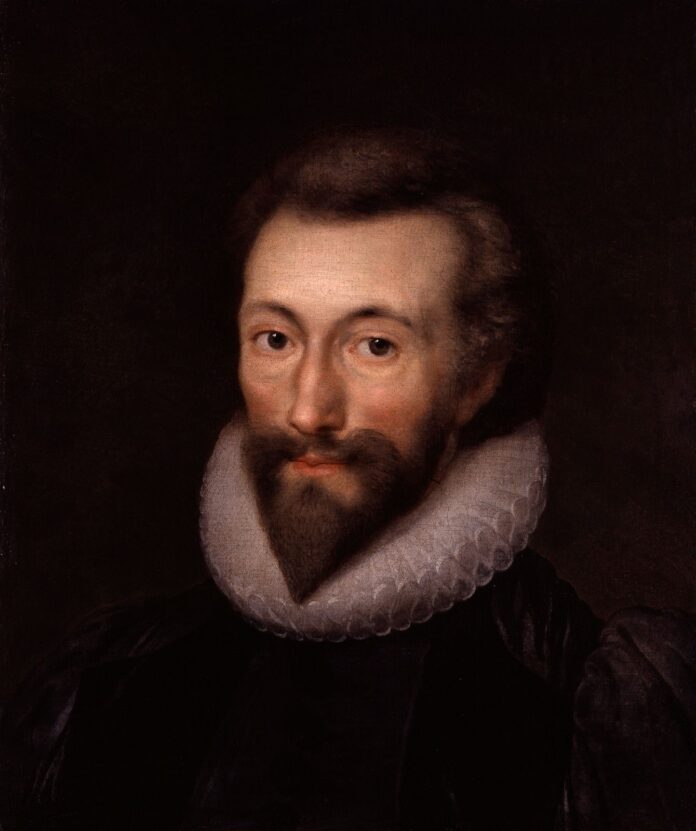On January 22, 1572, John Donne, one of England’s greatest poets and preachers, was born in London. A pioneer of metaphysical poetry, Donne is celebrated for his intricate wordplay, striking imagery, and profound exploration of love, religion, and mortality. His works, blending intellectual rigor with emotional depth, have left an indelible mark on English literature.
A Life of Contrasts
Donne’s life was a tapestry of contrasts—born into a devout Catholic family during a time of persecution, he later converted to Anglicanism and became one of England’s most renowned preachers. His early years were marked by passionate love poetry and a rebellious marriage that nearly derailed his career. In his later years, he embraced spirituality, crafting some of the most eloquent and introspective religious verse of his time.
The Metaphysical Poet
Donne’s poetry is defined by its wit, paradoxes, and metaphysical conceits—startling analogies that connect seemingly unrelated concepts. Works like “A Valediction: Forbidding Mourning” and “The Flea” showcase his ability to weave intellectual and emotional threads into dazzling tapestries of verse. His Holy Sonnets, including the famous “Death, be not proud,” delve deeply into questions of faith and redemption, reflecting his spiritual transformation.
The Preacher and Orator
In addition to his literary genius, Donne achieved fame as a preacher and Dean of St. Paul’s Cathedral. His sermons, renowned for their eloquence, drew large crowds and left an enduring legacy. His meditation, “No man is an island,” remains one of the most quoted passages in the English language, a timeless reminder of humanity’s interconnectedness.
A Legacy of Complexity
John Donne’s ability to capture the complexities of human experience—passion and piety, doubt and faith—ensures his place among the giants of English literature. His works continue to inspire readers and writers, offering a window into the depths of the human soul.
Remembering Donne
John Donne passed away on March 31, 1631, but his words live on, celebrated for their brilliance and their power to resonate across centuries. His poetry and sermons remain a testament to the enduring relevance of his insights into love, faith, and the human condition.




